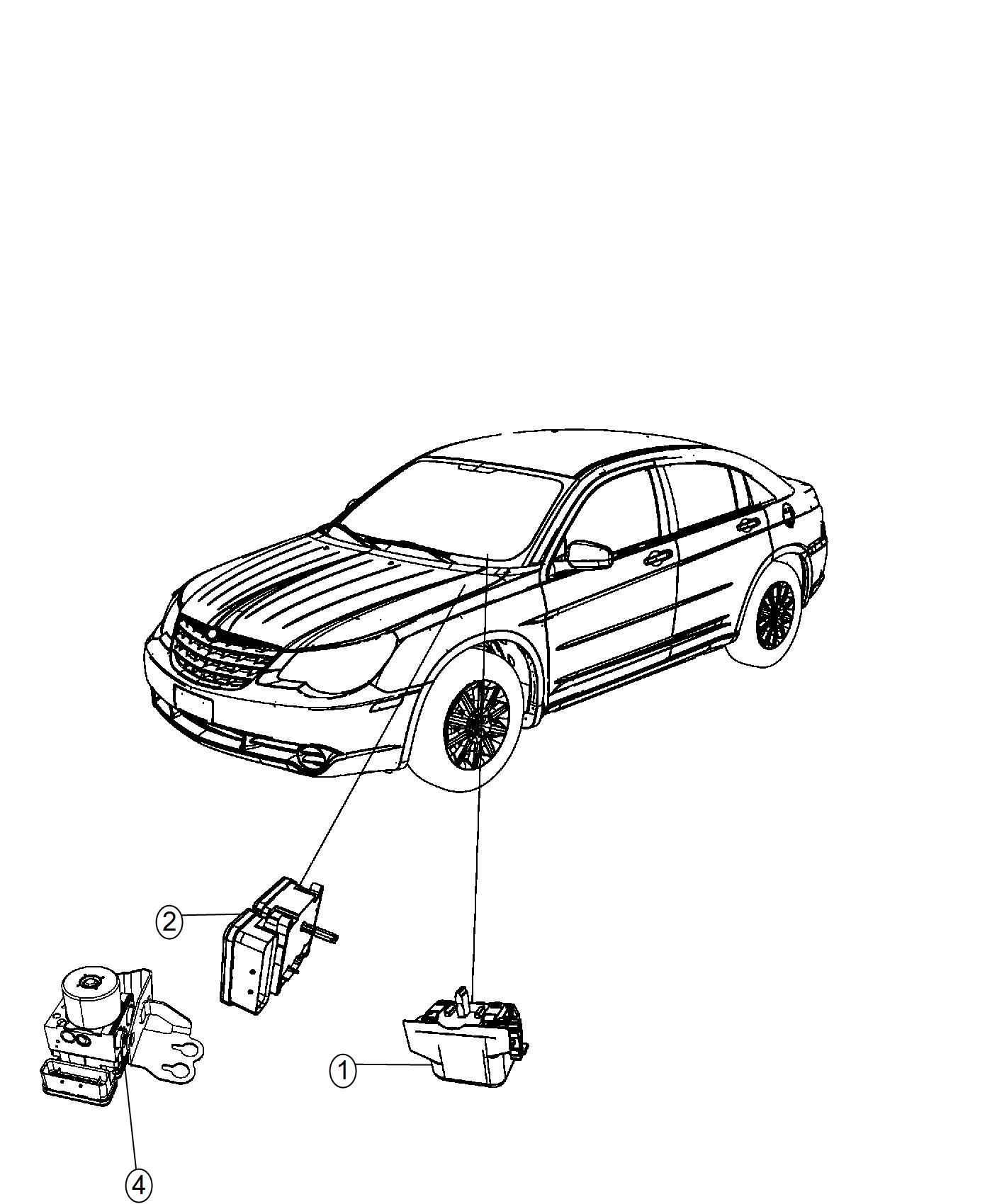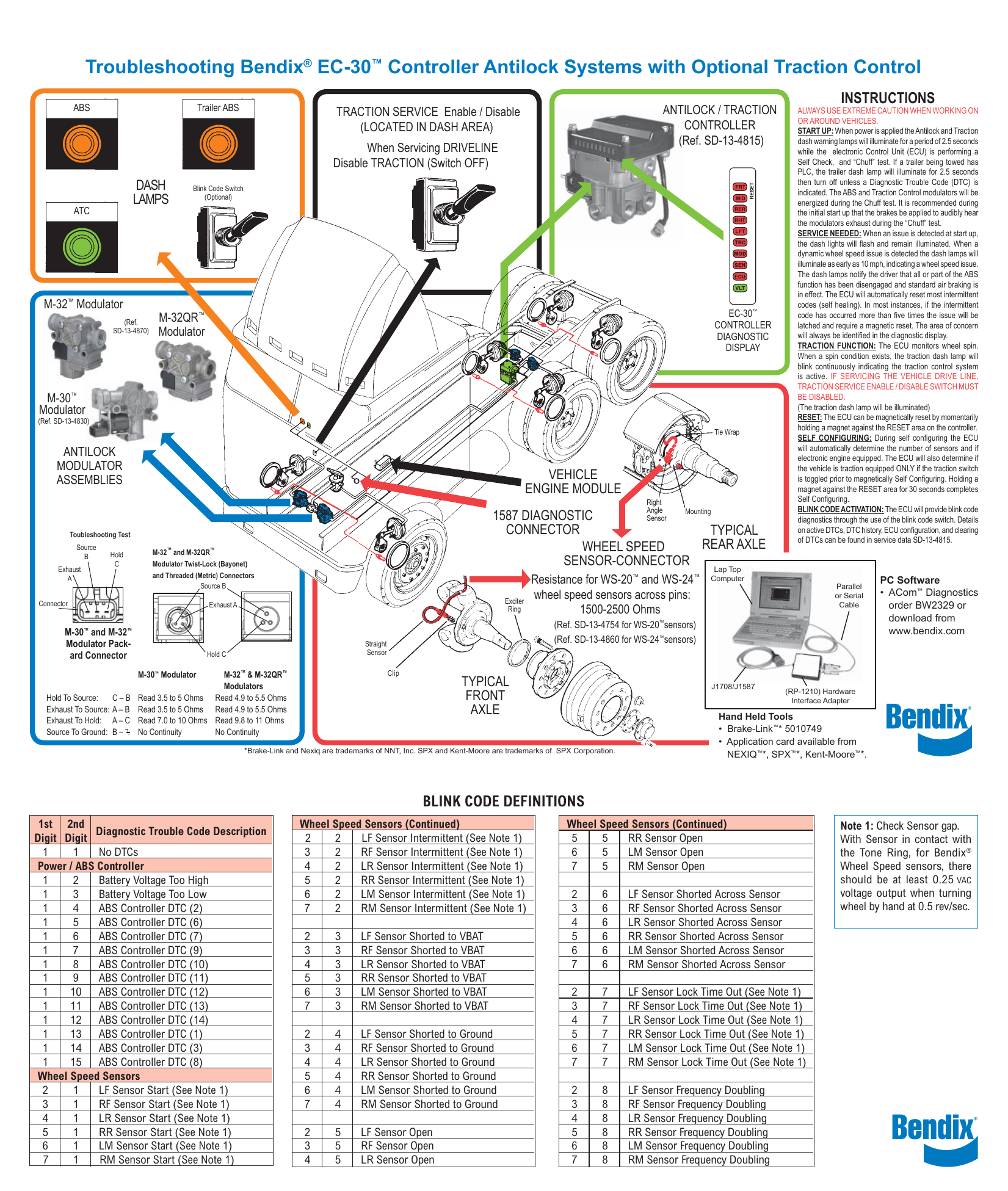Anti-lock brake systems (ABS) are essential safety features in modern-day vehicles, preventing wheel lock-up during braking and improving overall handling. However, when these systems malfunction, it can lead to a loss of control and potentially dangerous situations. If you’re experiencing problems with your ABS, read on to learn how to troubleshoot and diagnose these issues.
ABS malfunctions can manifest in various ways, including warning lights on the dashboard, vibrations or pulsations in the brake pedal, and a loss of braking effectiveness. These issues can arise from problems with sensors, wiring, or the control module, and they require prompt attention.
To troubleshoot ABS malfunctions, you’ll need to inspect the various components involved. Start by checking the wheel speed sensors for any damage or debris buildup. These sensors are responsible for providing data to the ABS module, and any issues here can affect system performance. Also, examine the wiring harness for breaks or loose connections.

## ABS System Overview
The ABS system comprises several key components, including wheel speed sensors, a control module, and hydraulic valves. The wheel speed sensors monitor each wheel’s speed and send this information to the control module. When a wheel locks up during braking, the control module activates the hydraulic valves to modulate the brake pressure, allowing the wheel to regain traction.
ABS systems are designed to improve vehicle stability and reduce the risk of skidding during braking. They are essential safety features that can help prevent accidents.

## History and Development of ABS
The first ABS systems were developed in the 1960s, but it wasn’t until the 1980s that they became widely available on production cars. Since then, ABS has become a standard feature on all new vehicles sold in the United States.
ABS systems have continually evolved over the years, with the latest systems offering improved performance and additional safety features. For instance, some ABS systems now include electronic stability control, which helps to prevent vehicles from skidding.

## Common Myths About ABS
There are a few common myths about ABS systems that should be debunked. One of the most common myths is that ABS increases stopping distance. This is not true; ABS actually helps to reduce stopping distance, especially on slippery surfaces.
Another common myth is that ABS makes it impossible to skid. This is also not true; ABS can help to prevent skids, but if you drive recklessly, you can still lose control of your vehicle.

## ABS Maintenance Recommendations
ABS systems require regular maintenance to ensure proper operation. The most important thing you can do is to replace worn brake pads and rotors. You should also have your ABS system inspected by a qualified technician every year.
If you notice any problems with your ABS system, such as the ABS warning light coming on, don’t ignore it. Take your vehicle to a mechanic as soon as possible to have the problem diagnosed and repaired.

### ABS Warning Lights
ABS warning lights are designed to alert you to potential problems with your vehicle’s anti-lock brake system. If the ABS warning light comes on, it means that the system is not functioning correctly and you should have it checked by a mechanic as soon as possible.
There are several possible causes for an ABS warning light to come on, including:
- Faulty wheel speed sensor
- Damaged or loose wiring
- Problems with the ABS control module
- Low brake fluid level
- Air in the brake lines

## Troubleshooting ABS Problems
If you are experiencing problems with your vehicle’s ABS system, there are a few things you can do to troubleshoot the issue.
- Check the brake fluid level. If the brake fluid level is low, it can cause the ABS system to malfunction.
- Inspect the wheel speed sensors. The wheel speed sensors are responsible for detecting the speed of each wheel. If a wheel speed sensor is damaged or dirty, it can cause the ABS system to malfunction.
- Check the wiring harness. The wiring harness connects the wheel speed sensors to the ABS control module. If the wiring harness is damaged or loose, it can cause the ABS system to malfunction.
- Have the ABS control module scanned for trouble codes. The ABS control module stores trouble codes that can help you identify the problem.

## What if ABS Fails?
If your ABS system fails, it means that you will not have the benefit of anti-lock brakes. This can make it more difficult to stop your vehicle in a safe and controlled manner.
If you suspect that your ABS system has failed, you should take your vehicle to a mechanic as soon as possible. The mechanic can diagnose the problem and repair the ABS system.

## Listicle of ABS Benefits
Here is a listicle of the benefits of ABS:
- Reduced stopping distances
- Improved stability and control during braking
- Reduced risk of skidding
- Increased safety for drivers and passengers
## Question and Answer
Here are some frequently asked questions about ABS systems:
1. What is ABS?
ABS stands for anti-lock braking system. It is a safety feature that helps to prevent wheels from locking up during braking.
2. How does ABS work?
ABS uses wheel speed sensors to detect when a wheel is about to lock up. When a wheel is about to lock up, the ABS system reduces the brake pressure to that wheel, allowing it to continue rotating.
3. What are the benefits of ABS?
ABS provides a number of benefits, including reduced stopping distances, improved stability and control during braking, and reduced risk of skidding.
4. What are some common ABS problems?
Some common ABS problems include faulty wheel speed sensors, damaged or loose wiring, and problems with the ABS control module.
## Conclusion
ABS systems are essential safety features that can help to prevent accidents. If you are experiencing problems with your ABS system, it is important to have it diagnosed and repaired as soon as possible.